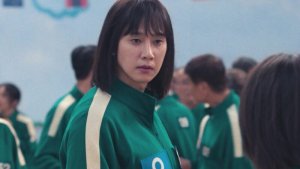 Japanese TV Series for Those Who Are in a Rush
Japanese TV Series for Those Who Are in a Rush
Disclaimer: This article shows how dumb the author of the article is so don’t take these words to heart, because come on we were once all newbies in Chinese dramaland!
Chinese historical TV series are taking over the world with their unique ideas and plot-twists which not once drove us to madness. I get it - they are absolutely awesome, but as a newbie, I've got a lot of questions for the senior watchers who know Chinese dramaland like the back of their palm. Sit down and prepare your papers because this student of yours aka me has a lot of questions for you!
1. 16 episodes, 20 episodes, 25 episodes….wait, 60 episodes?! |
As someone who was raised on Korean TV series, it’s normal for me to question the length of the dramas. Yes, even Korea produces dramas which have many episodes but we call them family dramas! For me, family dramas are counted as a genre somehow, so if I don’t feel like watching a family TV series I can always tune to the “standard” Korean dramas.
But with Chinese historical dramas, you don’t have an option to tune to the “standard” 16 episodes runtime. I rather quickly realized that the standard in China is around sixty episodes which is freaking long!
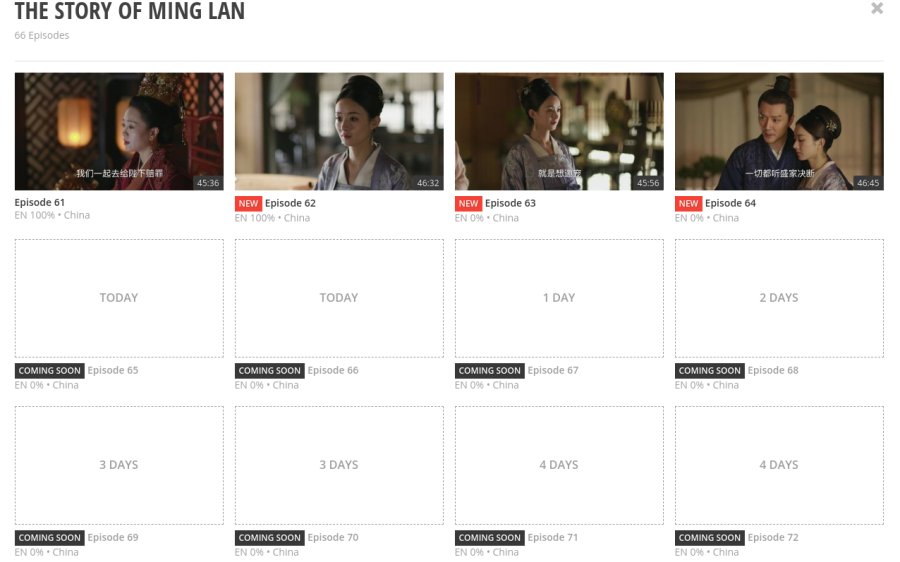
Question for my teachers > Why are Chinese historical dramas often so long?
2. Historical TV series or Wuxia TV series? |
This is really confusing me.
I’m sorry if you find my comparing boring + annoying but bear with me as come on, I am only a newbie and yes, I will use it as my excuse every time I say something dumb. Now, in Korea, you don’t divide dramas into historical and wuxia, it’s simply historical. Even if there are some fantasy elements the major genre of the given series would be historical. That’s why I don’t know why China divides its dramas into historical and wuxia.
Question for my teachers > What even is wuxia and how do I know that I am watching a wuxia drama and not a historical one?
3. Are you my cousin or auntie? |
I think this drives me nuts most times I watch a Chinese historical show.
The series often has a very big and hectic start meaning that in episode one we are introduced to four to more clans which have family members and some have affairs, while others are adoptive members and others are….I don’t even know what! Maids? I see that many historical dramas lack in character building and introduction which confuses me as a viewer! Come on, you got 60 episodes + so you have time to give a proper introduction to each clan so the viewer can remember who is who and what are the family ties.
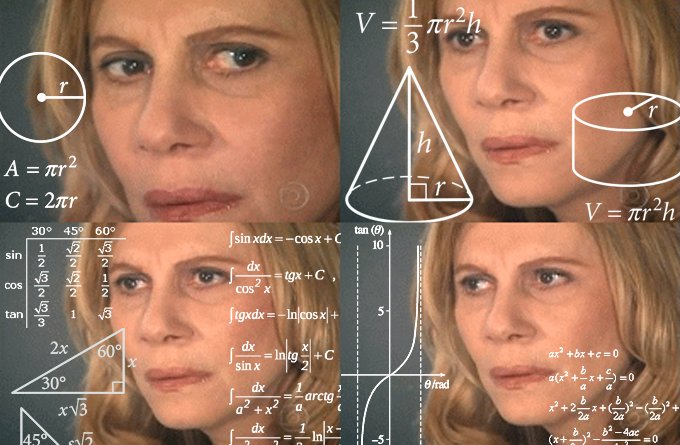
Question for my teachers > Why do Chinese historical dramas have problematic families?
4. Names |
I think this is really, really based on the Chinese culture which I am still new to.
I have a big problem with names! It looks like one character can have more than one name or even nicknames. For example, I am currently watching I Will Never Let You Go and the main lead has two or three names, I can’t tell you the number for sure as I forgot… Anyway, his name is Chen Yu, but his dad and others call him Yu’er or something? And I see this suffix – er in many Chinese dramas!
Also, the female lead is Hua Bu Qi, but she is also Zhu Zhu, Hou Hou and Mrs Su! What is going on, guys? Can anyone explain to me how can characters have so many names?

Question for my teachers > Why do main characters have more than one name? And why do they use suffixes?
5. Titles |
This walks hand in hand with names as our lovely characters are often not called by their names but titles! I don’t know how ancient China worked but it looked like the court offered many and I mean many positions.
Let me take I Will Never Let You Go as an example.
Chen Yu is called 'Heir Apparent' and later becomes 'Prince of Dongjin' if I remember correctly. The King gave him the new title of a prince but wasn’t he a prince from the beginning? Also, his father is Seventh Prince and trust me I only realized that he is the King’s brother in episode twenty-five! Since Chen Yu is the nephew of the King, his title is automatically a prince or am I wrong?
And I can talk on and on about the confusing titles which look like they are changing as the plot goes forward.
Question for my teachers > Can you give me an exact chart of how the titles go?
6. Is it a thing, city or human? |
I often encounter this problem.
I think the writer is at fault for this misunderstanding. When I start to watch a drama I often get slapped with new names which do not make sense for me as I never heard them before. I get this slap often in the first episode which thus makes the upcoming episodes even more confusing. I often think that the name they use, for example, "Biloutian", stands for a person or an item. Now I know after many episodes that it is a city. But really, I hate when they don’t introduce the term to the general audience while the characters in dramas know exactly what they are talking about. So I’m just sitting on my sofa slurping on my soda asking myself what the F is going on!

Question for my teachers > How do I know if it’s an item, city or a human if I've never heard the term before?
7. CGI |
You all knew this was coming so here it is.
Many historical dramas (and I think each one I’ve seen so far) uses CGI effects heavily! Which is very confusing for me since China is so freaking big and beautiful, so why create a forest on a green screen or studio when you can literally go out? Also not just once I saw poor editing. For example, in one shot a dog had a collar on and in the next shot, it was gone. And let’s not forget about the wig fails….
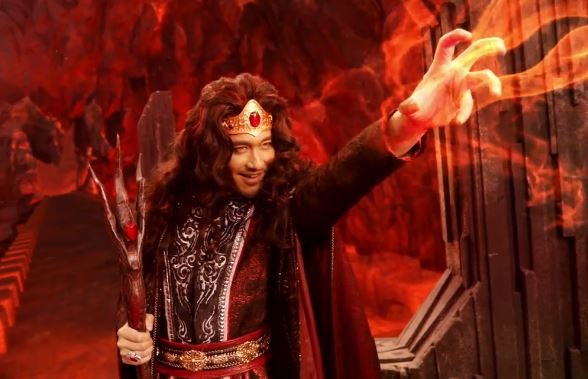
Question for my teachers > Why do Chinese dramas use CGI?
8. Drama, drama and more drama |
Since episode 1 we know that someone has a problem!
There is always a war or fight between the family clans over something and it starts directly from episode one which IS annoying as I want some background on what is going on. I hate that they always push me in the middle of something which I don’t have a clue about. It’s like pushing a child into water BUT the child doesn’t know how to swim. I expect a proper start with a slow build plot-line and when everything is explained I expect the drama in the middle and ending to be sweet and for once not heroic.
A lot of times the dramas are stuffed with so many dramatic moments that the main couple has literally no screentime together. Out of 60 hours of a drama, the couple was together for maybe 4 hours which for me is a huge problem as I am a romantic soul and want to bathe in romance.
Question for my teachers > Are there any dramas that match my description? Also, why are dramas filled with so much negativity?
9. Idioms |
I mentioned this in my previous article somewhere that the Chinese language is very complex and not easily translated. It’s filled with idioms which were created by wise people that lived centuries ago before your mommy taught you the words “don’t take sweets from strangers”. Yes, the language is beautiful but very hard to understand and I don’t know if this is because of the language barrier or not. As a foreigner, I use English subtitles to watch, but even with English subtitles, I do have a problem to understand the idioms they use.
Do you Chinese viewers understand the idioms?
Here is the text of one song which does not make sense for me :
The moon in my hand laughs to its heart content
The cloud in front of me goes to bed early
Spring breeze can't blow down my skinny waist
I'm bouncing in the peach blossom spring
Youngster, you shall not have the heart to return too early
Swallows also fly here in pairs
Peaches have dried prematurely and Japanese bananas also stay green
Question for my teachers > Do you understand the Chinese idioms?
10. Are you sick? No problem, just cough some blood! |
I encountered this in way too many dramas and it's so not realistic that I'm confused why the directors keep doing the same mistake.
Coughing blood is something like either a curse or a medicine.
Characters usually die from a coughing fit accompanied by the blood, while other characters are cured by coughing the blood out. As one doctor from the drama said, "your QI has been stabilized". Doctor, I think you are quite wrong on this statement. Look, I can't imagine having a cold and then I cough blood and yuppeee I am cured! That's not how real life works, guys.
Characters also spit out blood in times where it's not needed, for example, one character gently slapped the other one? Dang, he spat out a long string of blood. Someone kicks you in the chest? Another pool of blood. You got insomnia? Don't you worry, some blood coughing will do the magic!
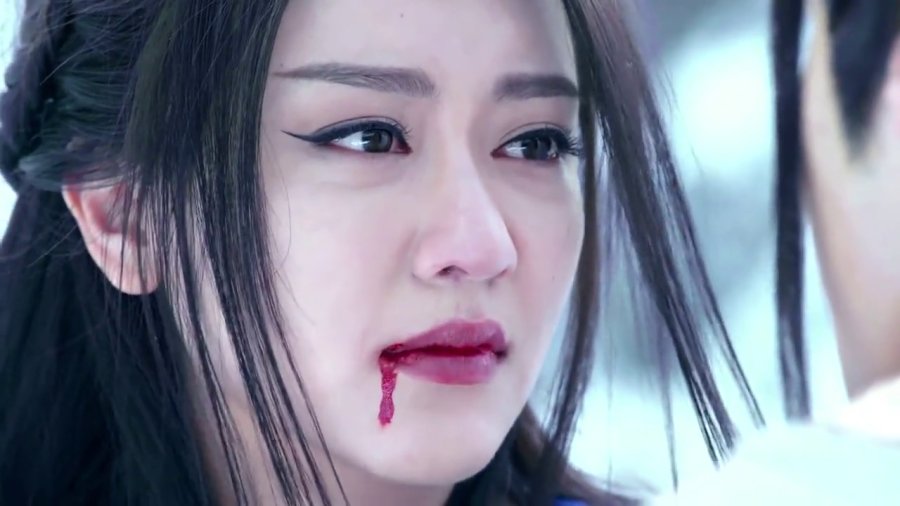
Question for my teachers > Why do characters spit out blood like it's a normal thing to do?
If you are reading this, you successfully finished my article which has many questions, but trust me I am seeking for the knowledge, so drop your answers below and teach me your ways!




